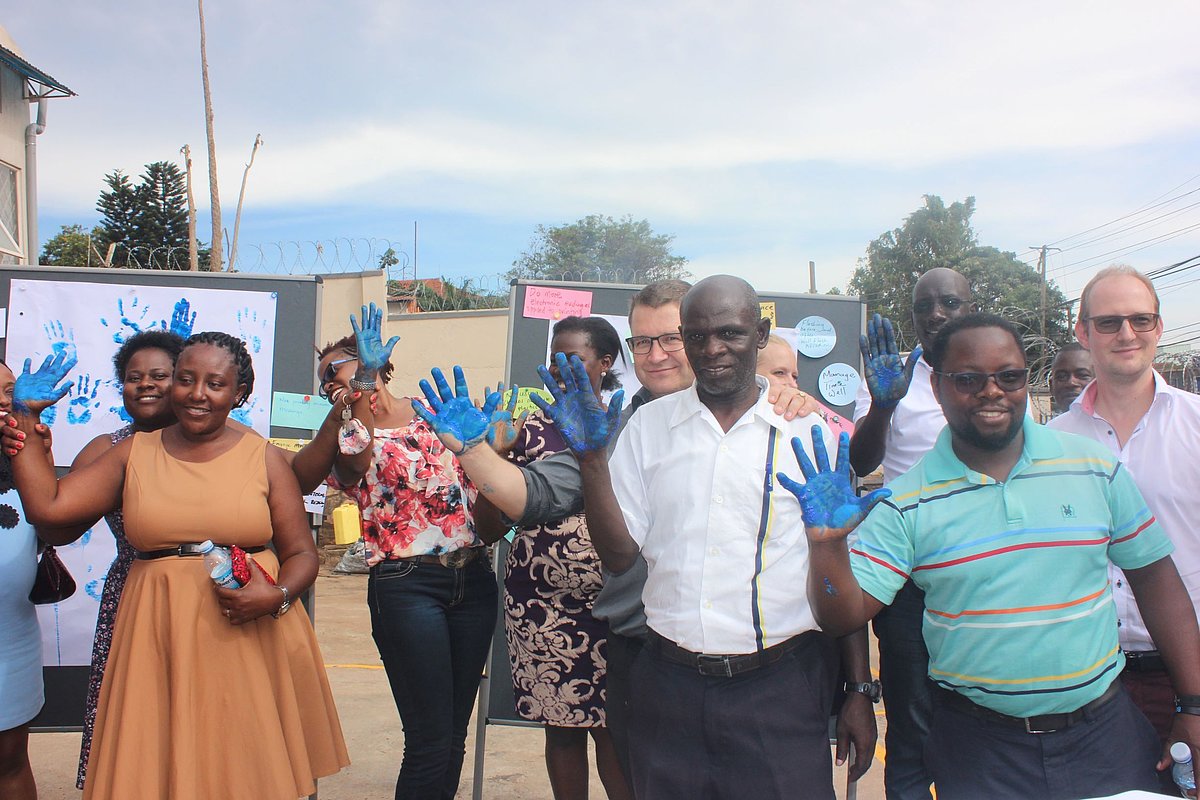Our sustainability management instruments
Sustainability Programme
With its clearly defined goals, measures and indicators, GIZ’s Sustainability Programme 2016–2020 both provides orientation and serves as a key management tool for corporate sustainability at GIZ.
Sustainability Programme 2016–2020
EMAS
The Eco-Management and Audit Scheme (EMAS) builds on the ISO 14001 standard and is the most exacting certification system that exists in the field of corporate environmental management. GIZ has freely undertaken to comply with this extremely stringent certification standard. We are using EMAS to enhance environmental management at all our sites in Germany. All the measures needed to promote, support and uphold EMAS across the company are initiated and monitored by our Environmental Management Officer, who is certified by the German technical inspection agency TÜV. The overarching objective is to continuously and demonstrably reduce any environmental damage caused by GIZ’s activities.
Memberships
GIZ belongs to various networks and initiatives that provide a framework for our corporate sustainability measures and a platform for sharing ideas and information. Here are some examples:
B.A.U.M. e.V.
We joined B.A.U.M. (German Association of Environmental Management) in 2011 and are fully signed up to its sustainable management code. B.A.U.M.’s goal is to raise awareness among companies, local authorities and other organisations of the need for precautionary systems of environmental protection and of the vision of sustainable business management. B.A.U.M. also helps its members to implement measures that are environmentally effective, economically viable and socially fair.
Biodiversity in Good Company
GIZ joined Biodiversity in Good Company when it was first set up. The initiative brings together companies from numerous sectors to drive action on the protection and sustainable use of global biodiversity resources in line with the UN Biodiversity Convention. Its goal is to halt the dramatic decline in ecosystems, species and genetic diversity.
Sustainability Leadership Forum (SLF)
The Sustainability Leadership Forum was set up by the German Association of Environmental Management (B.A.U.M.) and the Centre for Sustainability Management (CSM) at Leuphana University in Lüneburg, Germany. It is designed to facilitate discussion and collaboration between companies that have already established excellent sustainability management systems and wish to broaden their corporate sustainability strategy. The forum’s goals are to transfer knowledge and develop solutions.
Sustainability Leadership Forum (German only)
UN Global Compact
GIZ signed up to the UN Global Compact in 2004 and in doing so undertook to follows its ten principles relating to labour and welfare, human rights, the environment and the fight against corruption. We produce an annual report setting out the action we have taken in each of these areas. GIZ has been running the German Global Compact network’s Secretariat on behalf of the German Federal Ministry for Economic Cooperation and Development (BMZ) since 2001.
Business for Climate Protection
The Wirtschaft macht Klimaschutz (Business for Climate Protection) initiative was set up by the German Federal Ministry for the Environment, Nature Conservation and Nuclear Safety (BMU) to act as a forum for business leaders representing the wider economy for a limited period. From 2018 to 2019, its members worked to launch and expand climate change mitigation measures in companies.
Materiality matrix
We engage actively with both our internal and external stakeholders to help us identify key issues for our sustainability management and reporting at GIZ. We invite feedback on our performance in this area (including criticism, suggestions and ideas) so that we can make systematic improvements where required. At the heart of this process is the question of how to make our activities as effective as possible.
potential impact
Ranking
1. Climate protection
2. Protection of natural resources
3. Sustainable procurement
4. Protection and promotion of human rights
5. Sustainable mobility
6. Biodiversity
7. Diversity and gender
8. Compliance and anti-corruption
9. Digitalisation
10. Work-life balance and employee health
11. Sustainable events
12. Cooperation and partnership management
13. Staff development
14. Responsible use of funds
15. Learning organisation
16. Social engagement
Engaging in dialogue, learning from one another
Sustainability reporting
We report regularly on the progress we have made towards implementing and strategically mainstreaming sustainability measures across the company. Our sustainability reports are drawn up in line with recognised international standards and meet the requirements set out by the Global Reporting Initiative and the UN Global Compact. We also produce a biannual report based on the German Sustainability Code.
Our reporting practices
GRI content index and external audit
German Sustainability Action Days
GIZ takes part in the German Sustainability Action Days every year, and many GIZ employees use this opportunity to present their own initiatives. In 2019, they also organised a Sustainability Festival in Bonn with information stands, discussion groups and games, all designed to highlight what can be achieved and to encourage colleagues to get involved.
Bees, upcycling and clothes-swapping – staff initiatives at GIZ

CSH
With so many locations in around 120 countries, it can be challenging for GIZ to produce statistics measuring the environmental performance of its country offices. The Corporate Sustainability Handprint® (CSH) is a tool that allows us to record our sustainability performance efficiently and systematically all over the world. It also helps us to strengthen the sustainability profile of our local offices. While an organisation’s environmental footprint measures things such as water consumption and CO2 emissions, the handprint documents active contributions towards sustainability: for instance, installing solar panels rather than generators, arranging carpools for commutes, raising awareness of health issues, providing information about ethical conduct in potential conflict situations, and ensuring sustainable procurement. Moreover, in 2020 GIZ is supporting country teams in reducing greenhouse gases, thereby encouraging them to optimise their environmental sustainability performance.
Examples from our country offices in 2019
Country offices use the CSH tool to report on various measures that they have taken to reduce their environmental footprint. For instance, the country office in Thailand has drawn up both the Green Guide to Bangkok, which can help to make daily life more sustainable in Bangkok, and a Green Procurement Handbook. This handbook outlines different sustainability criteria to be included when procuring goods and services.
The country offices in Armenia, Azerbaijan and Georgia have joined forces to create the Regional CSH Exchange South Caucasus. This group promotes and strengthens information sharing by the GIZ offices in the neighbouring countries, helping them to agree on ways to broach specific regional challenges and implement joint measures within the environmental dimension of the CSH beyond national borders.
